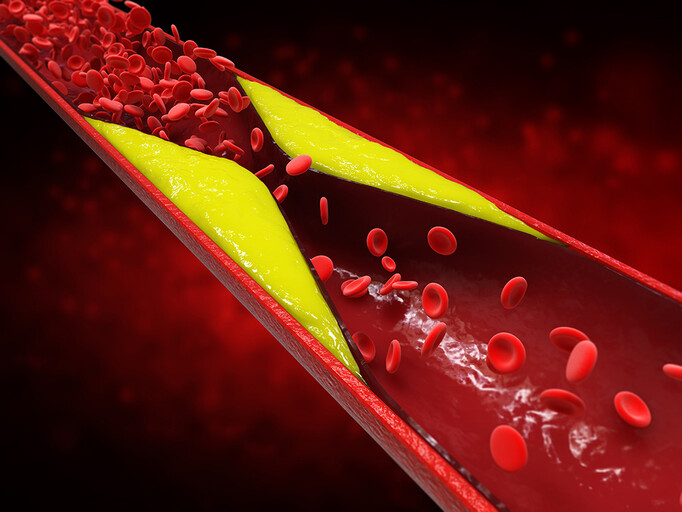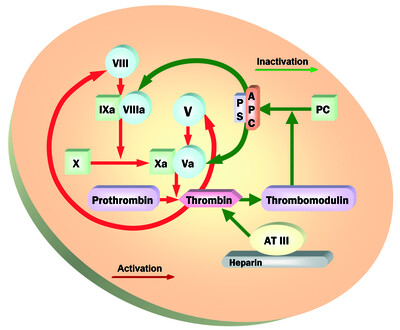Thrombophilia
Antithrombin
Antithrombin inhibits the serine proteases of plasmatic coagulation, moreover it proteolytically degrades thrombin (factor IIa) and also activates the synthesis of tPA (tissue plasminogen activator) on endothelial cells. The activity of antithrombin is accelerated 1000-fold by heparin.
Our latex-based immunoturbidimetric assay LIAPHEN™ Antithrombin with ready-to-use liquid reagents allows the determination of antithrombin antigen on all common coagulation analyzers. Other antithrombin assays that measure antithrombin activity through factor IIa or factor Xa inhibition are to be found here.
Protein C
Protein C is a Vitamin K-dependent glycoprotein, which regulates coagulation by cleaving factors Va and VIIIa and hereby suppressing their procoagulant co-factor activity. For that reason, patients with protein C deficiency have a higher risk of thrombosis. For the diagnosis of a hereditary or acquired protein C deficiency, a latex immunoassay (antigen assay, LIAPHEN™ Protein C) as well as a chromogenic assay (BIOPHEN™ Protein C LRT) and a clotting assay (HEMOCLOT™ Protein C) are available from us.
The anticoagulant activity of protein C is accelerated by its co-factor protein S. For the quantitative determination of protein S, our customers may choose between a clotting assay (HEMOCLOT™ Protein S), a latex immunoassay (antigen assay, LIAPHEN™ Free Protein S) and an ELISA (ZYMUTEST™ Protein S Total).
Factor V Leiden
Factor V Leiden mutation is the most common hereditary thrombophilia risk factor. This genetic anomaly can be detected by our clotting assay HEMOCLOT™ Quanti. V-L, which enables users to determine the factor V Leiden concentration by measuring its resistance to activated protein C (APC resistance).
Protein Z
Protein Z is another significant coagulation inhibitor that serves as co-factor in the inhibition of factor Xa. Low protein Z concentrations can be associated with an increased risk of thrombosis. Furthermore, pregnancy complications have been reported repeatedly in case of protein Z deficiencies. ZYMUTEST™ Protein Z Antigen is a reliable ELISA kit for measuring protein Z concentrations in human citrated plasma.
For information on control and calibration plasma and other reagents, please see our folder „Thrombophilie Screening“ (German version).
Lupus Anticoagulants
Lupus Anticoagulants are highly procoagulant antibodies to phospholipids, which are associated with various symptoms such as autoimmune diseases and thrombosis. Their presence must usually be confirmed by several assays. For this purpose, we offer our screening assay HEMOCLOT™ LA-S in combination with our confirmation test HEMOCLOT™ LA-C with diluted Russell’s viper venom (dRVVT) reagents. Our CEPHEN™ reagents for the determination of the activated partial thromboplastin time (aPTT) are available additionally. They have a moderate sensitivity to lupus anticoagulants and can be used in combination with a highly sensitive reagent (CEPHEN™ LS).
More lupus anticoagulants assays can be found here.


